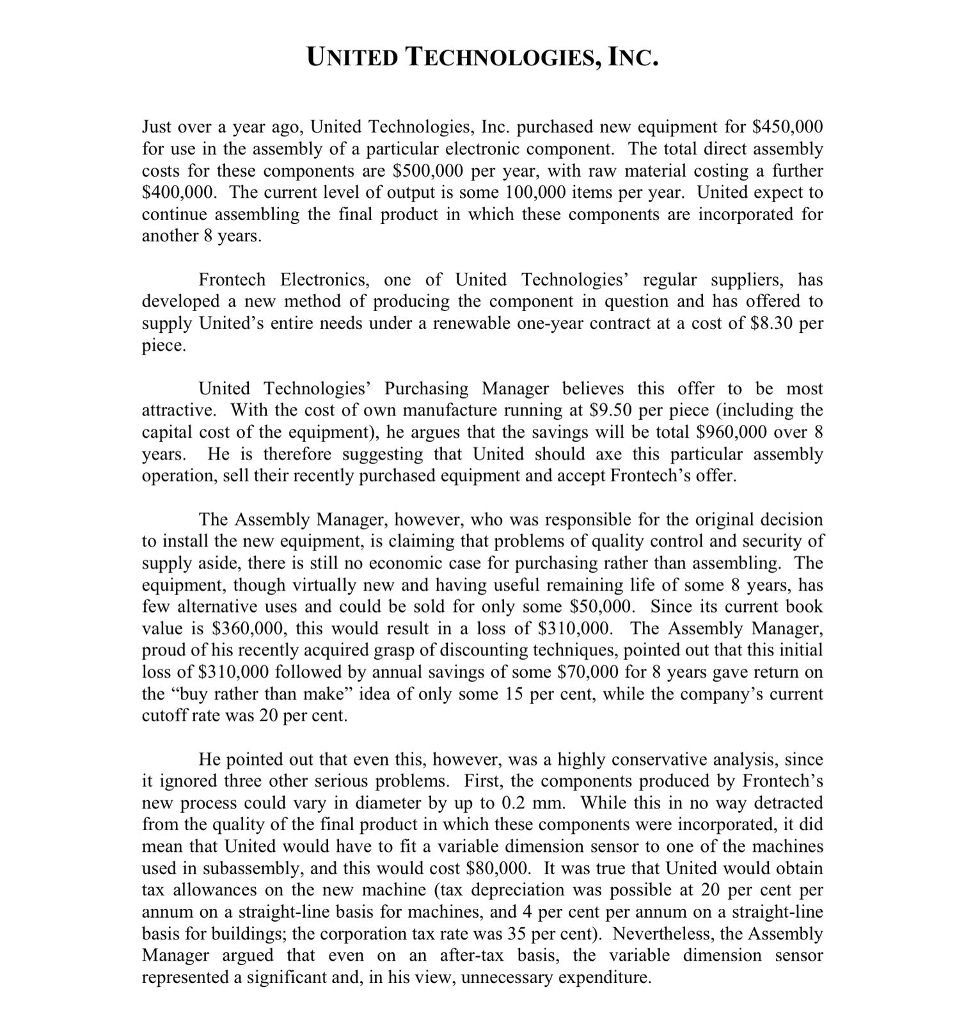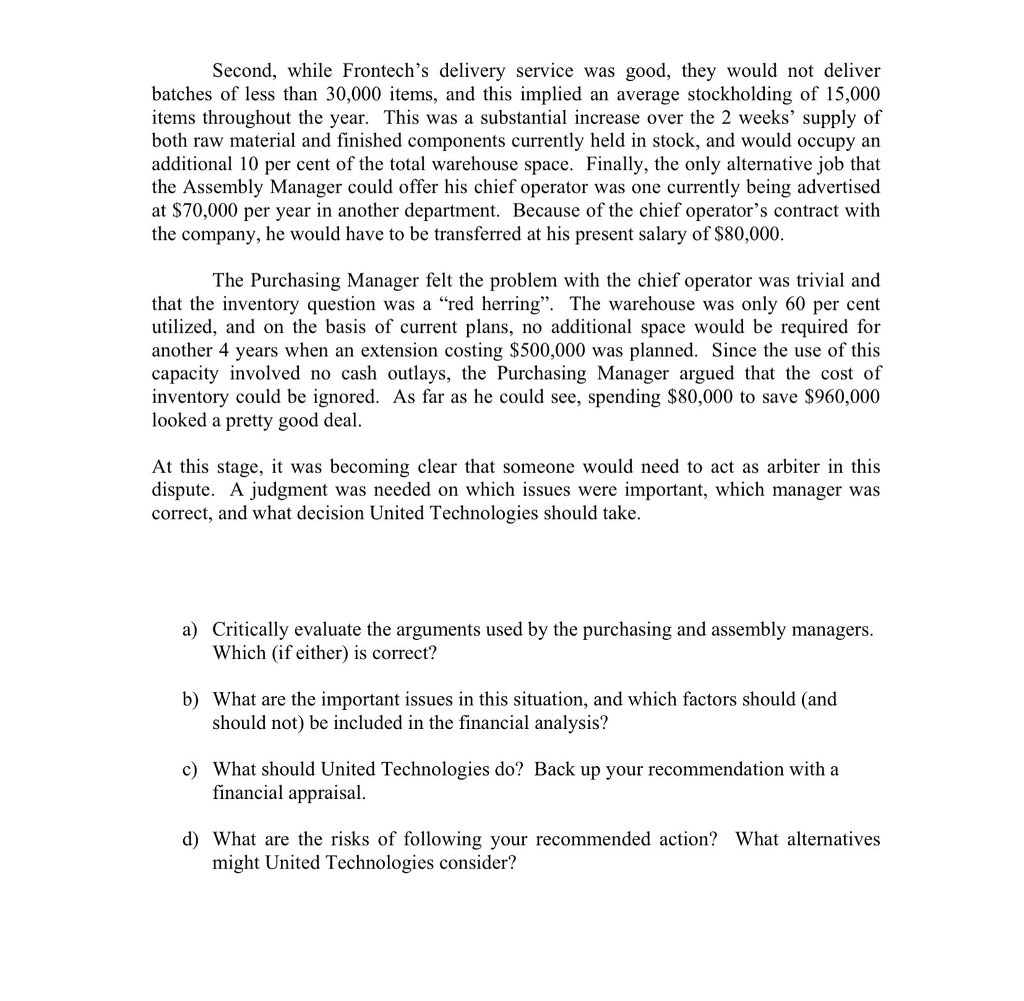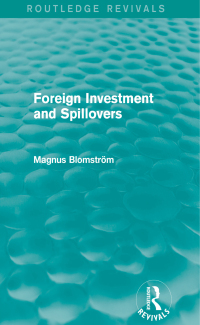Answered step by step
Verified Expert Solution
Question
1 Approved Answer
What is the NPV of purchasing versus assembling? UNITED TECHNOLOGIES, INC. Just over a year ago, United Technologies, Inc. purchased new equipment for $450,000 for


What is the NPV of purchasing versus assembling?
UNITED TECHNOLOGIES, INC. Just over a year ago, United Technologies, Inc. purchased new equipment for $450,000 for use in the assembly of a particular electronic component. The total direct assembly costs for these components are $500,000 per year, with raw material costing a further $400,000. The current level of output is some 100,000 items per year. United expect to continue assembling the final product in which these components are incorporated for another 8 years Frontech Electronics, one of United Technologies' regular suppliers, has developed a new method of producing the component in question and has offered to supply United's entire needs under a renewable one-year contract at a cost of $8.30 per piece United Technologies' Purchasing Manager believes this offer to be most attractive. With the cost of own manufacture running at S9.50 per piece (including the capital cost of the equipment), he argues that the savings will be total $960,000 over 8 years. He is therefore suggesting that United should axe this particular assembly operation, sell their recently purchased equipment and accept Frontech's offer The Assembly Manager, however, who was responsible for the original decision to install the new equipment, is claiming that problems of quality control and security of supply aside, there is still no economic case for purchasing rather than assembling. The equipment, though virtually new and having useful remaining life of some 8 years, has few alternative uses and could be sold for only some $50,000. Since its current book value is S360,000, this would result in a loss of $310,000. The Assembly Manager, proud of his recently acquired grasp of discounting techniques, pointed out that this initial loss of $310,000 followed by annual savings of some $70,000 for 8 years gave return on the "buy rather than make" idea of only some 15 per cent, while the company's current cutoff rate was 20 per cent He pointed out that even this, however, was a highly conservative analysis, since it ignored three other serious problems. First, the components produced by Frontech's new process could vary in diameter by up to 0.2 mm. While this in no way detracted from the quality of the final product in which these components were incorporated, it did mean that United would have to fit a variable dimension sensor to one of the machines used in subassembly, and this would cost $80,000. It was true that United would obtain tax allowances on the new machine (tax depreciation was possible at 20 per cent per annum on a straight-line basis for machines, and 4 per cent per annum on a straight-line basis for buildings; the corporation tax rate was 35 per cent). Nevertheless, the Assembly Manager argued that even on an after-tax basis, the variable dimension sensor represented a significant and, in his view, unnecessary expenditureStep by Step Solution
There are 3 Steps involved in it
Step: 1

Get Instant Access to Expert-Tailored Solutions
See step-by-step solutions with expert insights and AI powered tools for academic success
Step: 2

Step: 3

Ace Your Homework with AI
Get the answers you need in no time with our AI-driven, step-by-step assistance
Get Started


